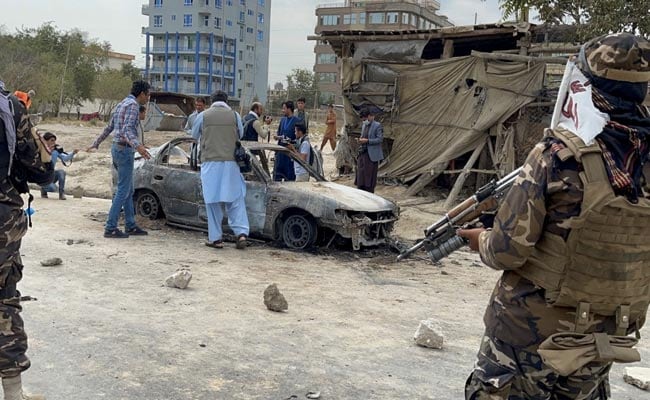
Three years after the suicide attack at Abbey Gate in Afghanistan that killed 13 US military personnel and about 170 Afghan civilians, the network behind the attackers has been “significantly weakened” but not eliminated, the Pentagon’s civilian commando chief said.
“A number of coalition and partner disruptions to the ISIS-K network have degraded its ability to conduct these types of attacks,” Christopher Maier, the assistant secretary of state for special operations and low-intensity conflict, said in a brief interview after a breakfast meeting with reporters Friday.
President Joe Biden promised on the day of the attack outside Hamid Karzai International Airport that “we will not forgive, we will not forget, we will find you and you will pay a price.” Maier said that “we are in the process of doing that,” and “we have made a significant dent in this network that carried out the Abbey Gate attack.”
The attack three years ago next Monday was a devastating low point in a campaign that critics decried as chaotic, despite the fact that 124,000 Afghans were evacuated between the US exit from Afghanistan and the Taliban takeover of the country.
Republicans have taken advantage of the attack to criticize Biden’s foreign policy. During his acceptance speech at the Republican National Convention in July, former President Donald Trump said America’s standing in the world “began to deteriorate with the disastrous withdrawal from Afghanistan, the greatest humiliation in the history of our country.”
Trump struck a deal with the Taliban, but not the Afghan government, in February 2020 that set an initial timetable for withdrawing US troops from Afghanistan, which Biden revised. Trump and Republicans have blamed Biden — and now his successor, Vice President Kamala Harris, the Democratic nominee — for the manner of the withdrawal.
During a breakfast with reporters, Maier said that “we continue to assess that AB Gate” was the work of “multiple individuals” who benefited from ISIS-K’s infrastructure. He added that since then, the US and partners have “clear cases where we have been able to disrupt networks associated with AB Gate.”
“One of the things we have benefited from is that Central Asian countries are more aware of the threat posed by Afghanistan,” he said. “Some of the recent plots that have been foiled appear to have had direct support from some of these partners,” he said, without naming the countries involved.
The House Foreign Affairs Committee plans to release its review of the withdrawal from Afghanistan early next month.
(Except for the headline, this story has not been edited by NDTV staff and is published from a syndicated feed.)






